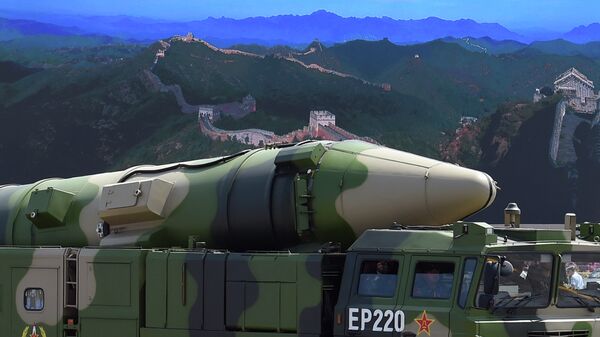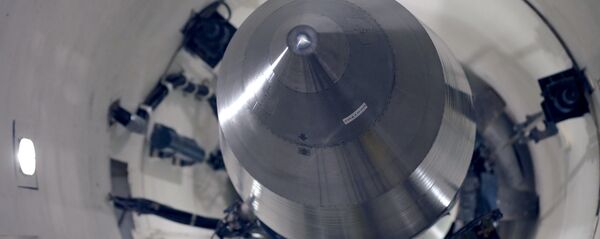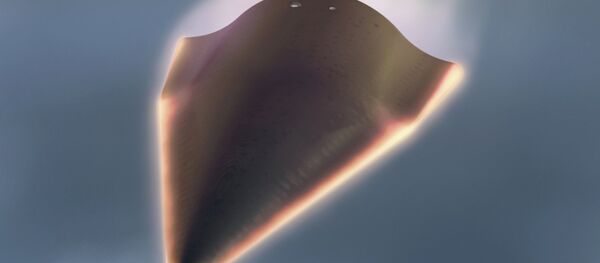In recent months, tensions between the two nations have reached new heights. In the South China Sea, Beijing and Washington are at loggerheads over the former’s construction of artificial islands, with the US concerned China is attempting to establish an air defense zone. In the neighboring East China Sea, Tokyo and Beijing are at odds over the Senkaku islands, a conflict partly driven by the United States pressuring its Pacific allies into taking a harder stance against China’s growing influence.
As these tensions simmer, an op-ed for Asia Times by Bill Gertz points out that China has been stockpiling its missile arsenal for years, over concerns of US aggression.
"Beijing’s arsenal of ballistic and cruise missiles has been growing steadily for decades as new systems were fielded in an array of ranges – short, medium and intercontinental," Gertz writes. "Several long-range cruise missiles, capable of carrying nuclear or conventional payloads also are deployed."
In addition, Beijing has secretly developed a hypersonic missile, the DF-ZF glide vehicle, which ascends to the Earth’s upper atmosphere in order to bypass anti-missile defense systems.
As the United States plans to deploy a Terminal High-Altitude Area Defense (THAAD) missile defense system on the Korean peninsula, ostensibly aimed at deterring North Korean aggression, Beijing has been forced to beef up its own missile defenses.
"To develop suitable capabilities of missile defense is necessary for China to maintain national security and improve defense capabilities. It is not targeting any other country or target, nor is it jeopardizing the international strategic equilibrium," Chinese Defense Ministry spokesman Sr. Col. Yang Yujun told reporters last month.
"We will pay close attention to relevant actions of the US and [South Korea] and will take necessary measures to maintain national strategic security as well as regional strategic equilibrium."
While much of China’s developments have been conducted in secret in the past, Beijing is now becoming more public about its missile capabilities. The United States, perhaps as intended, has taken notice.
"Hyper-glide vehicle research and development are also challenging our planning calculus. The ability to find, fix and track and hold…these types of capabilities are becoming increasingly more difficult. Hyper-glide vehicle technology can complicate our sensing and our defensive approaches," said US Strategic Command chief Adm. Cecil Haney, during a recent missile conference.
According to Haney, the Pentagon must rethink its missile defense.
"We have to think about it and look at it in different ways so that, again, we are maximizing sensing to be able to understand what exactly is it going at so we can then look at how do we take it out."
According to a report in China Military Online, escalations between the two superpowers will lead to the inevitable.
"The problem is not whether the war will break out, but when," the report said. "Our task is to develop the 'trump card' weapon for China before the war."





